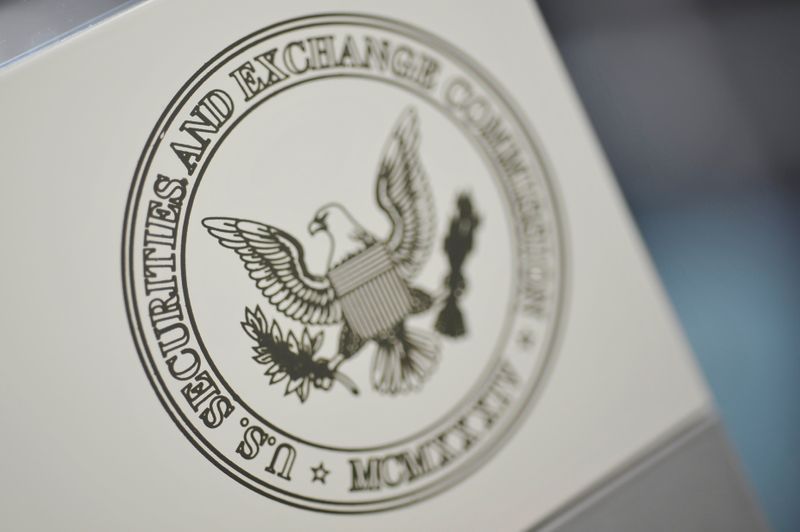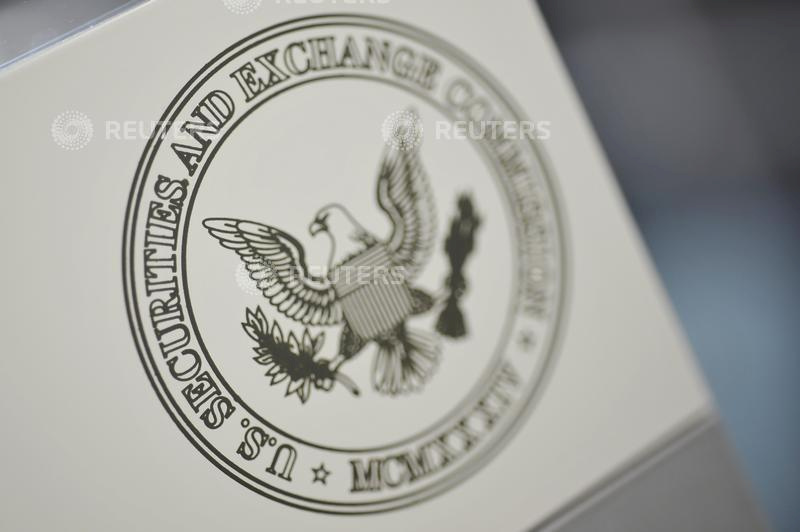By Katanga Johnson
WASHINGTON (Reuters) - U.S. companies are grappling with how best to provide guidance on their earnings outlook as the novel coronavirus takes uncertainty to new heights and exposes them to potential shareholder lawsuits if forecasts prove misplaced.
Measures to contain the virus have shuttered businesses, wiped nearly $5 trillion off U.S. stock markets, put 16 million Americans out of work, and plunged the country into recession, posing unique challenges as companies head into earnings season.
With the future clouded in doubt, the securities regulator last week urged companies to discuss in disclosures and investor calls how their operations and financial conditions may change as efforts to fight the virus progress with testing and monitoring.
The Securities and Exchange Commission (SEC) said that by providing broad guidance, corporate America would help paint a clearer picture of when the country could get back to work -- a dilemma the White House is eager to resolve as soon as possible.
That could put companies in a legally risky position, however.
"The SEC may not second guess issuers' good-faith attempts to provide this limited information, but the plaintiffs' bar may not take the same approach," said Christopher Bellini, chair of the private equity practice at law firm Cozen O’Connor.
The SEC has encouraged companies to use legal safe harbors specifying that certain statements do not violate securities law. But while those should protect companies from an SEC penalty, they may not shield them from investor litigation, lawyers said.
False forward-looking statements were cited in roughly half of federal class action lawsuits over the past five years, excluding those related to mergers and acquisitions, according to data compiled by Cornerstone Research.
Lawyers said companies should disclose potential areas of future capital raising, but that they were otherwise urging clients to use extra cautious language when providing an outlook, including specifying precisely when management is making assumptions, and weaving in additional caveats.
For example, Bruce Newsome, a lawyer at Haynes & Boone, said that for "added cover" he was advising clients to include the following caveat: "These projections are based on current thoughts given coronavirus restrictions, but the extent of the risk cannot be confirmed."
Johnson & Johnson (JNJ.N), the first major U.S. drugmaker to report earnings, on Tuesday cut its 2020 profit forecast and predicted a year-end recovery in its medical device business, while also dedicating its cautionary note on forward-looking statements to the spectrum of uncertainties caused by the virus.
Likewise on Tuesday, Wells Fargo (NYSE:WFC) & Co's CEO Charlie Scharf provided some heavily couched guidance on future loan loss reserves, while the bank also added the pandemic to its safe habor statement listing factors that could cause actual results to differ from its outlook.
"Sitting here today, there are many unknowns," he told analysts.
Contrary to the SEC's request, some lawyers said that at least for the first quarter they were encouraging clients to consider removing outlook estimates altogether.
"It is too big a risk for issuers to provide meaningful forward-looking statements," said Bellini.

(This story corrects spelling of law firm in paragraph 10.)
